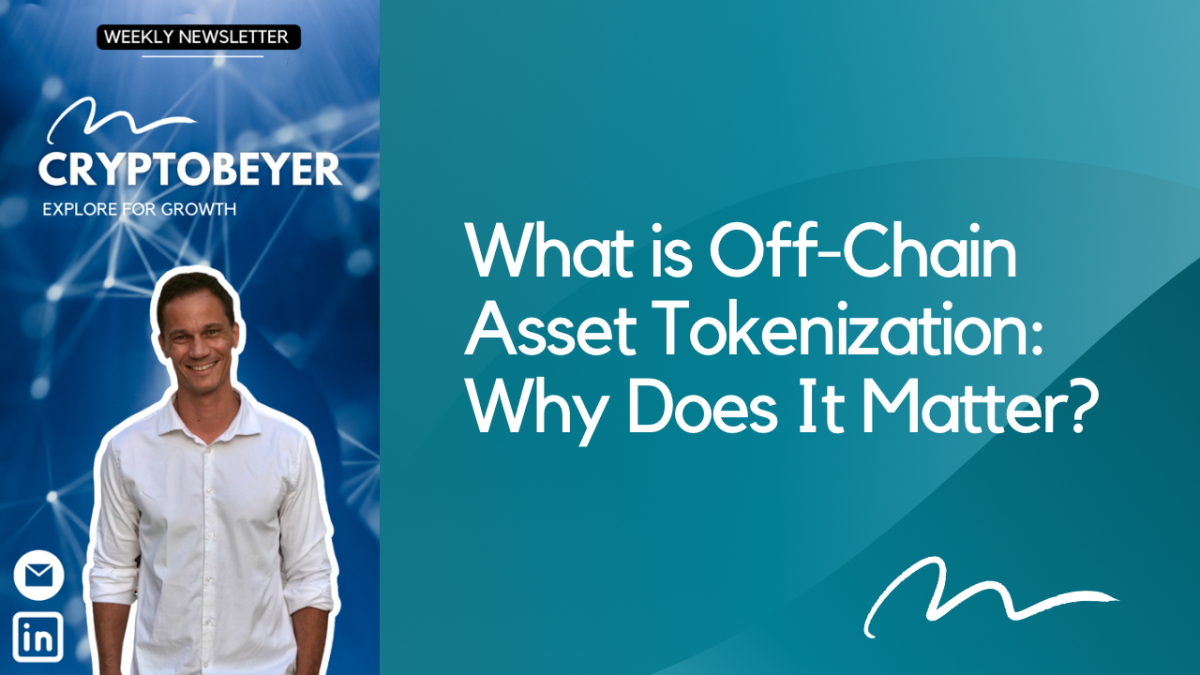What is OCA Tokenization?
Imagine you own a valuable picturesque cottage by the beach. Traditionally, if you wanted to sell a portion of this property to raise funds, it would involve a lengthy process of paperwork, legal agreements, and intermediaries like real estate agents and lawyers.
Now, let’s bring off-chain asset tokenization into the picture. Instead of going through the hassle of traditional selling, you decide to tokenize your property. This involves creating digital tokens that represent ownership shares in the cottage. For simplicity, let’s say you decide to tokenize it into 100 tokens.
With these tokens, you can offer them for sale to potential investors on a blockchain-based platform. Each token represents a fraction of the property’s value and ownership. So, if an investor buys 10 tokens, they effectively own 10% of the cottage.
The benefits become evident when you look at the buying and selling process. Investors can easily purchase these digital tokens, transfer them, and trade them on the blockchain platform. There’s no need for extensive paperwork or intermediaries. And since these tokens are divisible, smaller investors can participate in owning a piece of real estate that was once out of their reach.
Why does it matter?
This concept promises substantial advantages for various economic sectors, ranging from finance to the crypto economy. In the financial realm, tokenization has the potential to streamline asset management, diversify risk, and enhance market efficiency. Furthermore, it could become a reliable source of collateral and yield and increase stability for decentralized finance (DeFi) platforms (they need all the help they can get…). But most interesting is its possibility to spark financial inclusion and help in catalyzing economic growth.
The ripple effects of tokenizing off-chain assets could potentially ripple through the real economy. Allow me to break it down. By simplifying transactions and reducing associated costs, tokenization has the potential to revamp the efficiency of financial markets, effectively lowering entry barriers.
The tokenization process simplifies buying, selling, and transferring assets. Through the representation of assets as digital tokens on a blockchain, transactions could be expedited, eliminating the need for intermediaries and excessive paperwork. One of the most significant hurdles in traditional financial transactions is the multitude of intermediaries involved. Think brokers, custodians, and clearinghouses, each adding their own layer of fees. Tokenization proposes a solution by cutting out middlemen, resulting in cost savings.
Tokenization introduces the concept of fractional ownership, which enables investors to own smaller portions of high-value assets. This democratization of ownership widens the investment horizon, inviting a broader audience into financial markets.
At its core, tokenization seeks to democratize finance. By providing access to capital markets and financial services, it opens the doors for a more inclusive financial system. Suddenly, investments in once-inaccessible assets like real estate or art become attainable for individuals. The utilization of blockchain for tokenization ushers in a new era of transparency and security. Transactions are recorded on an immutable ledger, minimizing the chances of fraud or manipulation and fostering trust.
As I have previously mentioned in other articles, Larry Fink, CEO of BlackRock, has described tokenization as the next generation for markets. Furthermore, a research note from Boston Consulting Group suggests that the tokenization of global assets could become a $16 trillion industry by 2030.
To me mixing OCA tokenization and Defi raises many fears around hacks which have been a major concern lately. Imagine selling your house as a digital asset, to different buyers, and a hacker runs aways with the money. Who do you call? Ghostbusters?
Like any first try, do not expect OCA Tokenization as a technology to be perfect in the near future. Legal uncertainties and regulatory hurdles loom large. Who knows how much time is needed before it’s a secure and easy to use product for the average Joe.


One reply on “What is Off-Chain Asset Tokenization: Why Does It Matter?”
[…] Continue reading about tokenization: What is Off-Chain Asset Tokenization: Why Does it Matter? […]